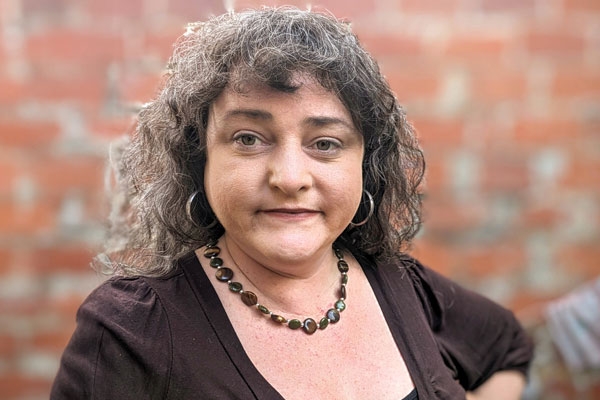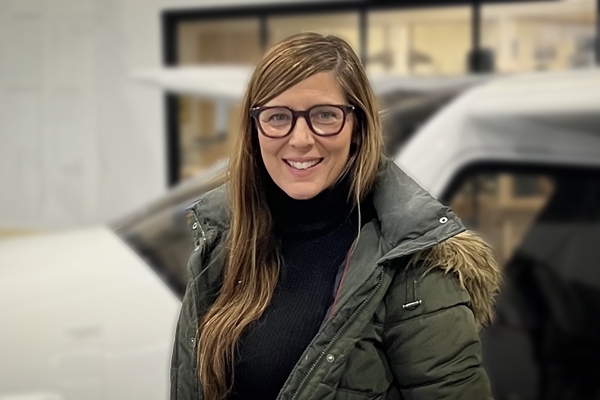You started a piece of fiction or nonfiction in a recent writing class or workshop, and since that course has ended, so has your writing. What are the next steps to keep your work-in-progress from becoming a work-going-nowhere?
During the summer term, we offer a six-week intensive writing workshop to keep the momentum going. This course is open to anyone who needs the inspiration, motivation and determination to jump-start the writing process.
Honored Instructors Laurie Ann Doyle and Daniel Coshnear each provide supportive and constructive feedback to keep your writing on track. Learn to become more sensitive and deliberate in both your reading and writing, and then turn focused attention upon your own stories.
What Can You Expect in Story Lab?
The Basics
Daniel Coshnear: Story Lab consists of:
-
6 classes
- 18 hours class time: 10 devoted to workshop, 8 given to discussion of readings (published stories)
- examination of the elements of the craft
- exercises
Laurie Ann Doyle: My goal is that you come away with both inspiration and instruction. You’ll have the opportunity to workshop your short story or memoir piece at least twice during the six-week course.
The Details
Laurie: We’ll discuss some of the best fiction and memoir around, looking for inspiration in how master writers handle point of view, character, conflict and other narrative components. Based on the stories presented in workshop, I’ll offer tailored talks on specific craft elements, such as scene versus summary, the relationship of a story’s beginning to its ending, managing time and other topics geared to strengthening your writing.
Daniel: You can expect—because experience has taught me to expect—a friendly, respectful, engaged, thoughtful group of classmates who, like you, wish to improve their writing. You can expect a climate wherein risk is valued, and careful, critical response is appreciated.
You can expect at least two opportunities to share your stories with the group, and possibly more depending upon class size.
Their Approaches
Laurie: Over the decade or so that I’ve been leading writing workshops, I’ve come to believe “a rising tide raises all ships.” In other words, success for one writer is success for us all.
Using this as a guideline, I shape my workshops to be encouraging rather than competitive. We usually begin with the student reading an excerpt from the piece that they’re workshopping. This has the wonderful effect of grounding us all in their work, and allows the author to hear out loud the words they’ve written, perhaps for the first time.
We then proceed to a discussion not about what’s wrong with this particular story, but what’s working well. I like to focus first on a story’s strengths, because I believe writers can learn a great deal from what they’ve done well. I encourage others to specifically identify strong passages in the work, such as an engrossing setting or a vividly drawn character, material that might also serve as models (inspiration?) to improve other parts of the story.
It’s useful if people’s comments in workshop are posed as questions rather than judgments or generalizations. In my experience, telling a writer you like or don’t like something isn’t terribly helpful, unless it’s backed up with specific examples.
The final five to 10 minutes of the workshop are devoted to the author’s own questions about their story, especially those not addressed in workshop. Over the years, students have told me that this four-step approach to workshop leaves them feeling energized and with concrete ideas for revision.
Daniel: William James, pragmatist and philosopher, said, “Whatever works is true.”
Jerome Stern, author of Making Shapely Fiction, said, “The measure of a story is what happens to the reader.”
Though many attempts have been made, there are no simple blueprints for essays and stories. We learn best from reading and discussion, from plumbing our own responses, from observing what moves us and why. Good work challenges our preconceptions, enables us not merely to recognize, but to experience.
We learn from risk and reflection.
You can expect occasional moments of brilliance. You can expect a few stunning insights. You can expect to see your work through new eyes.
You can expect unusual cravings, increased liability, cramps, heartburn, back pain.
You can expect to be surprised, and to surprise yourself.



